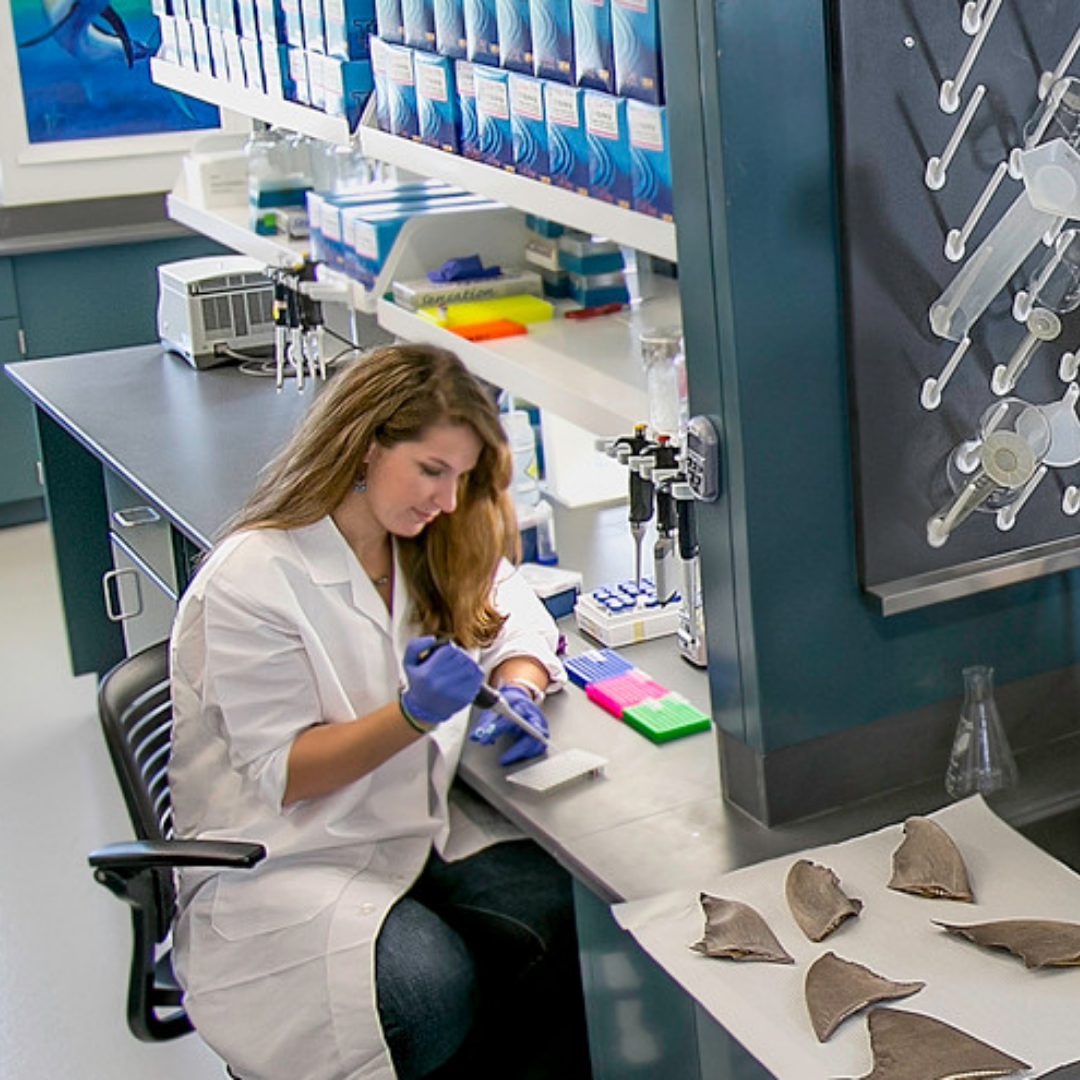Research Laboratories
Research activities in the NSU Halmos College of Arts and Sciences span a breadth of scholarly areas, from the natural sciences to the social sciences to the humanities and the arts—and many emerging interdisciplinary areas in between.
Research in the college engages all members of this vibrant community and includes:
- Experiential learning opportunities for our undergraduates
- Original research for all our students – no matter what level
- Cutting-edge research by our world-renowned faculty
The NSU Halmos College of Arts and Sciences has many other forms of scholarly and creative expression. These include acclaimed new works of art, performances, poetry, and fiction; published books and articles in academic and popular presses; and policy and advocacy pieces addressing current problems impacting society.
NSU Halmos College of Arts and Sciences Fast Facts
All Laboratories
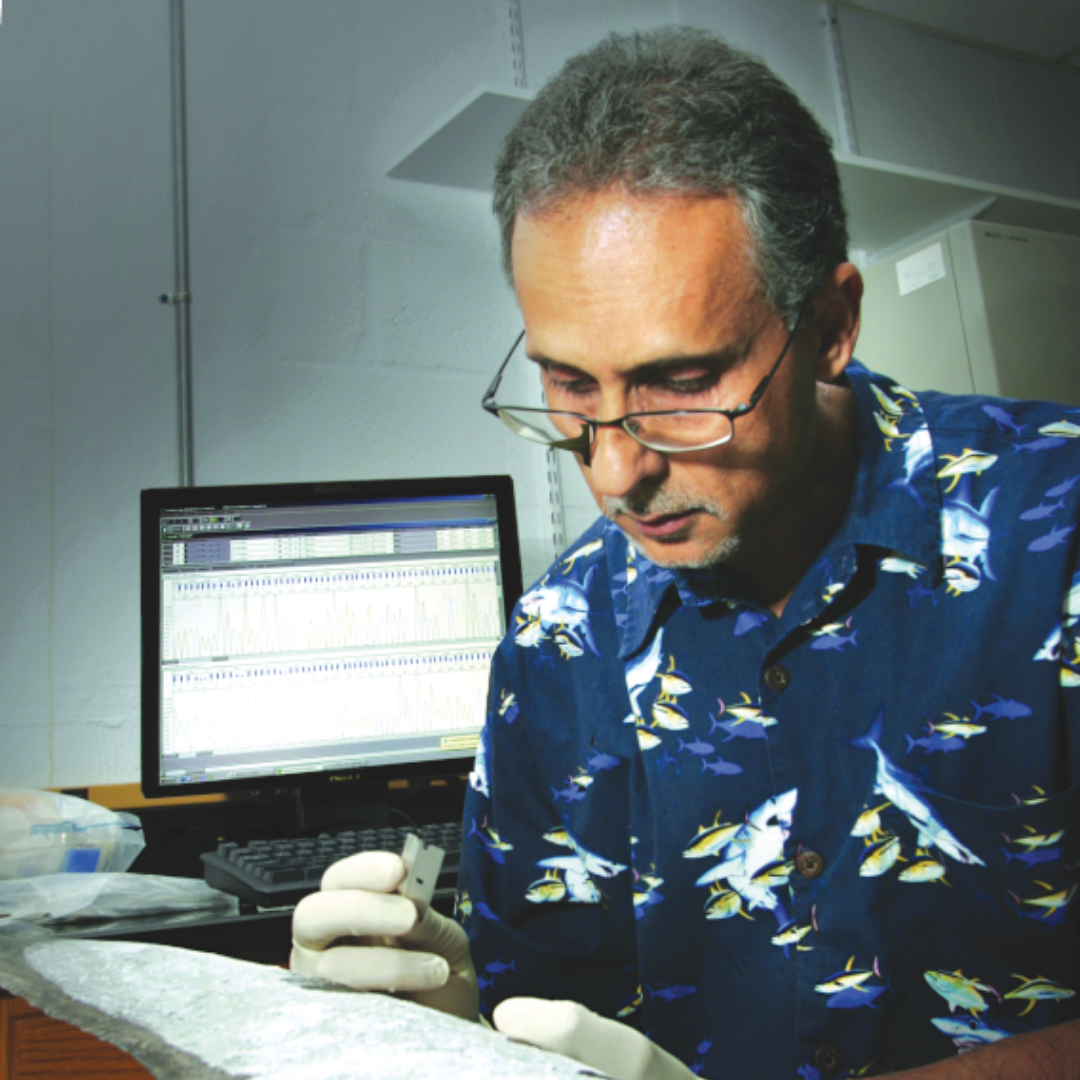
Conservation Biology & Genetics Laboratory
Conservation Biology is an interdisciplinary science that applies field and genetic research methods to the understanding, conservation, and management of marine species.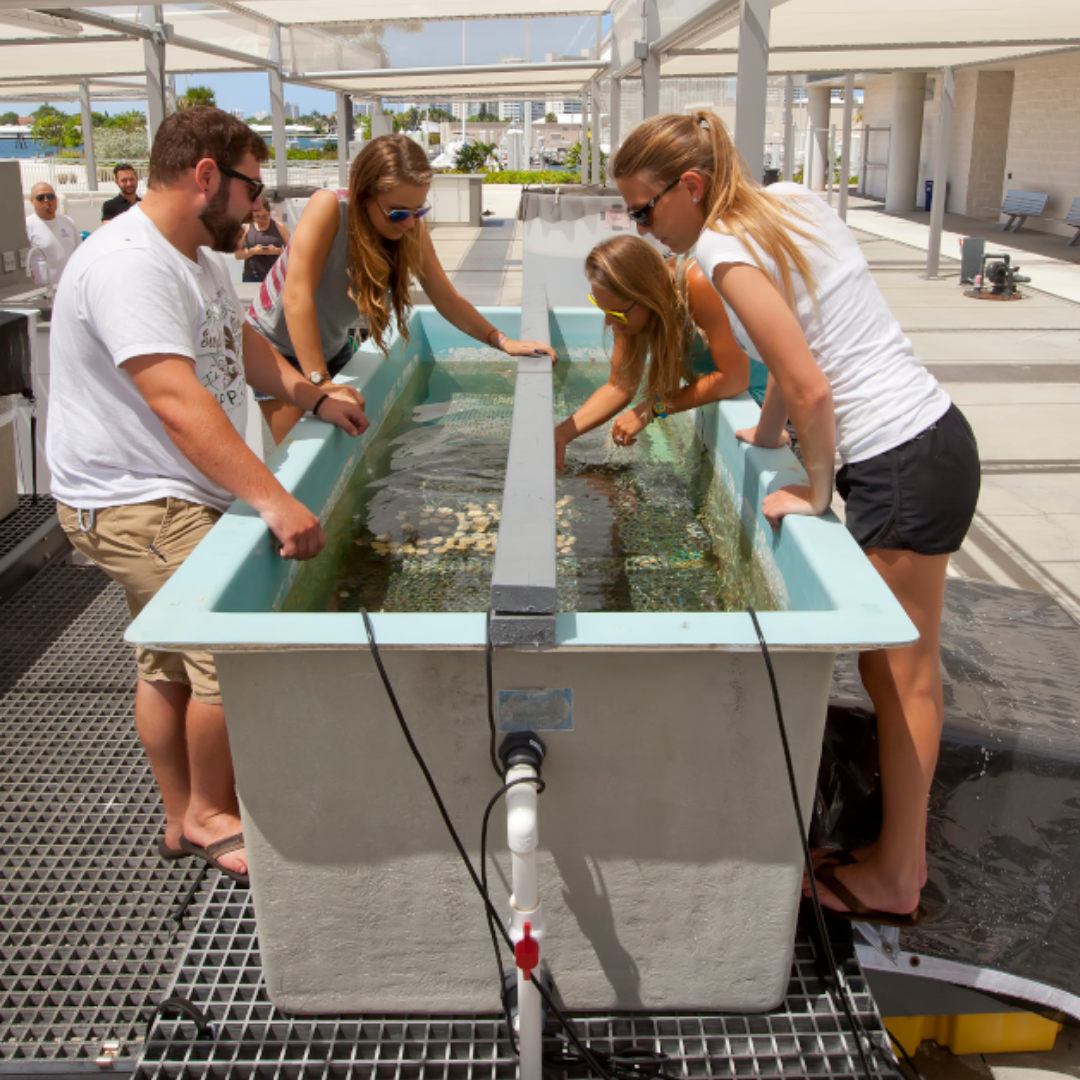
CRRAM Laboratory
Research on coral reef ecology with an emphasis on restoration, assessment, and monitoring (CRRAM) includes investigating the ecology, restoration, and conservation of staghorn coral (Acropora cervicornis) populations. The lab has a strong resource management focus and works closely with local, state, and federal agency resource managers.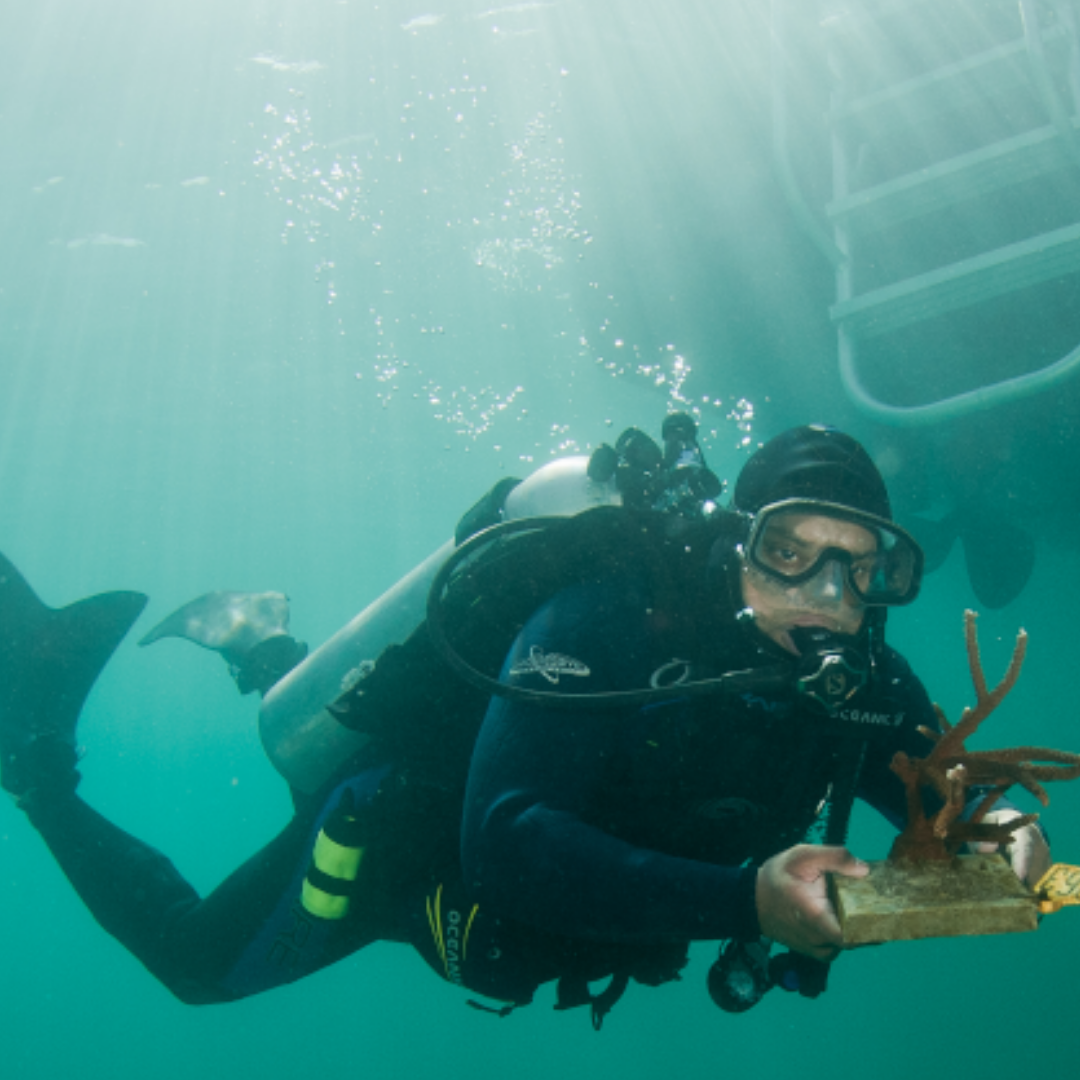
Deep Sea Biology Laboratory
This research focuses on the visual physiology of deep-sea animals; specifically, zooplankton ecology, with emphasis on the effects of downwelling light on their daytime distribution patterns and vertical migrations.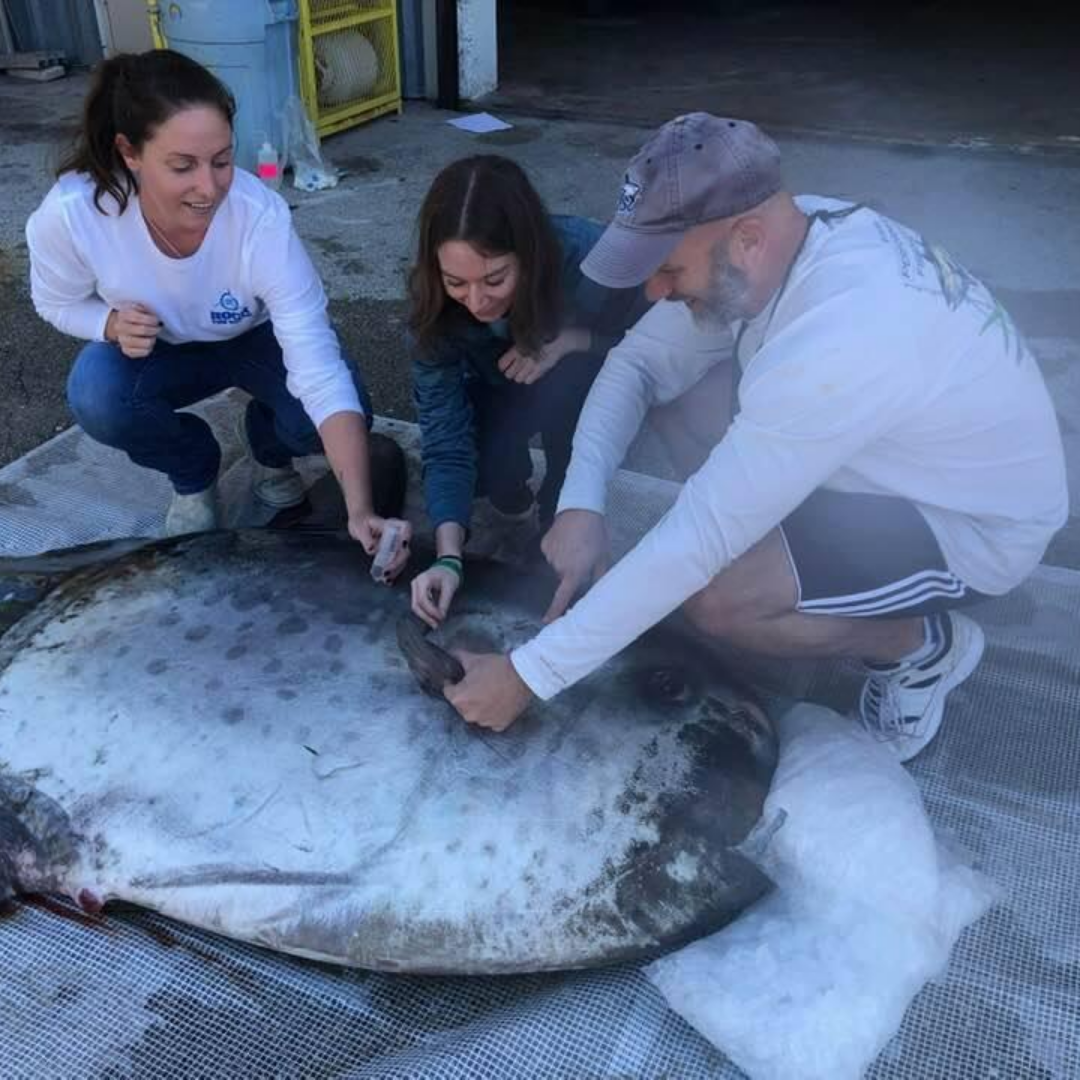
Fisheries & Avian Ecology Laboratory
Fisheries research at the Halmos College of Arts and Sciences has historically focused on the commercially and recreationally important coastal and pelagic fishes, including billfish, tunas, and swordfish. Fisheries science is the discipline of managing and understanding the harvesting of aquatic species, including finfish. It is a multidisciplinary field, which draws on aspects of oceanography, ecology, engineering, ichthyology, socio-economics, and management to provide an integrated picture of fisheries and their effects on the environment.
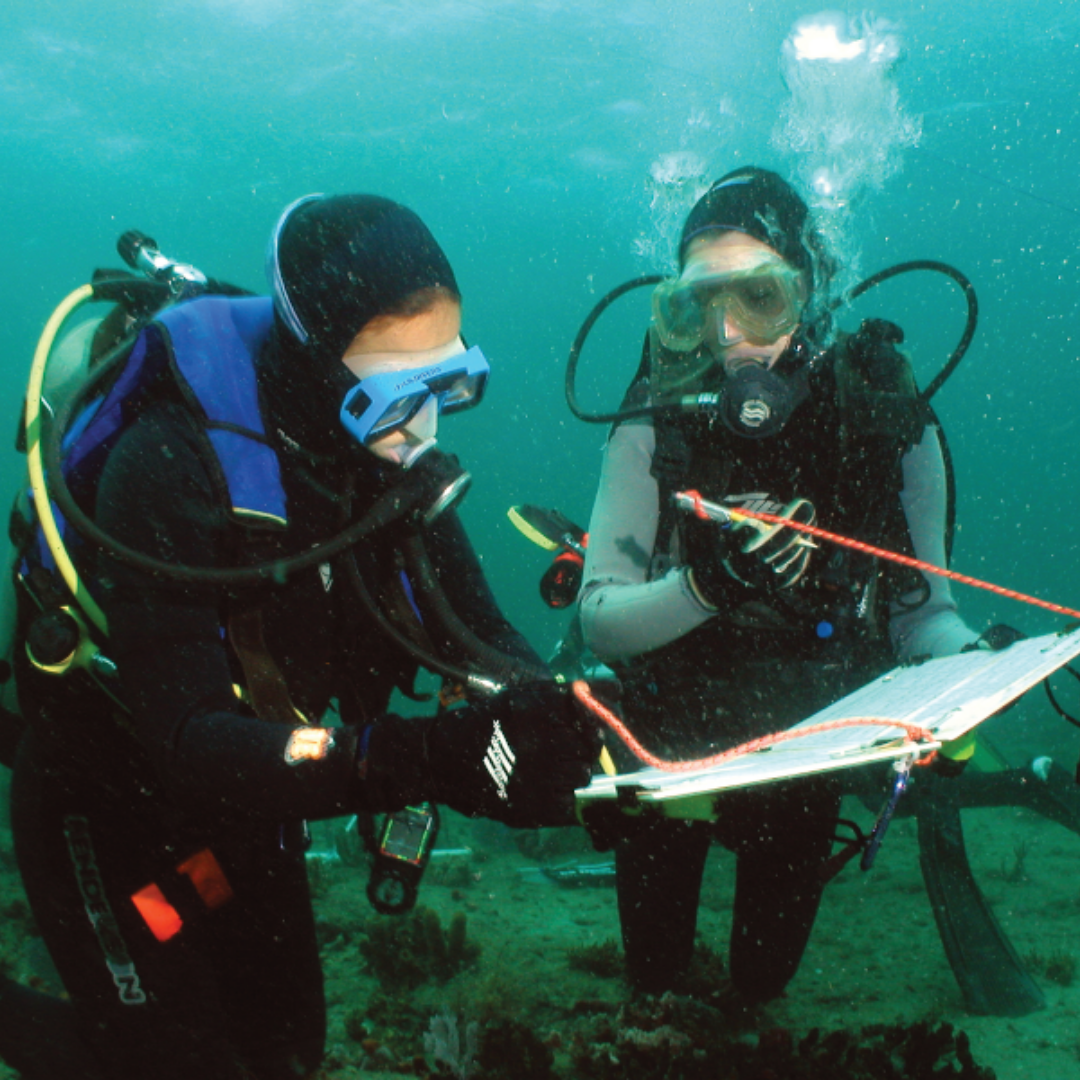
GIS & Spatial Ecology Laboratory
Utilization of Geographic Information Systems (GIS) as a tool to study the ecology, distribution, and spatial arrangement of benthic (sea bottom) coastal and ocean habitats and marine organisms to provide maps and other spatial information for enhancement of knowledge, conservation, and resource management.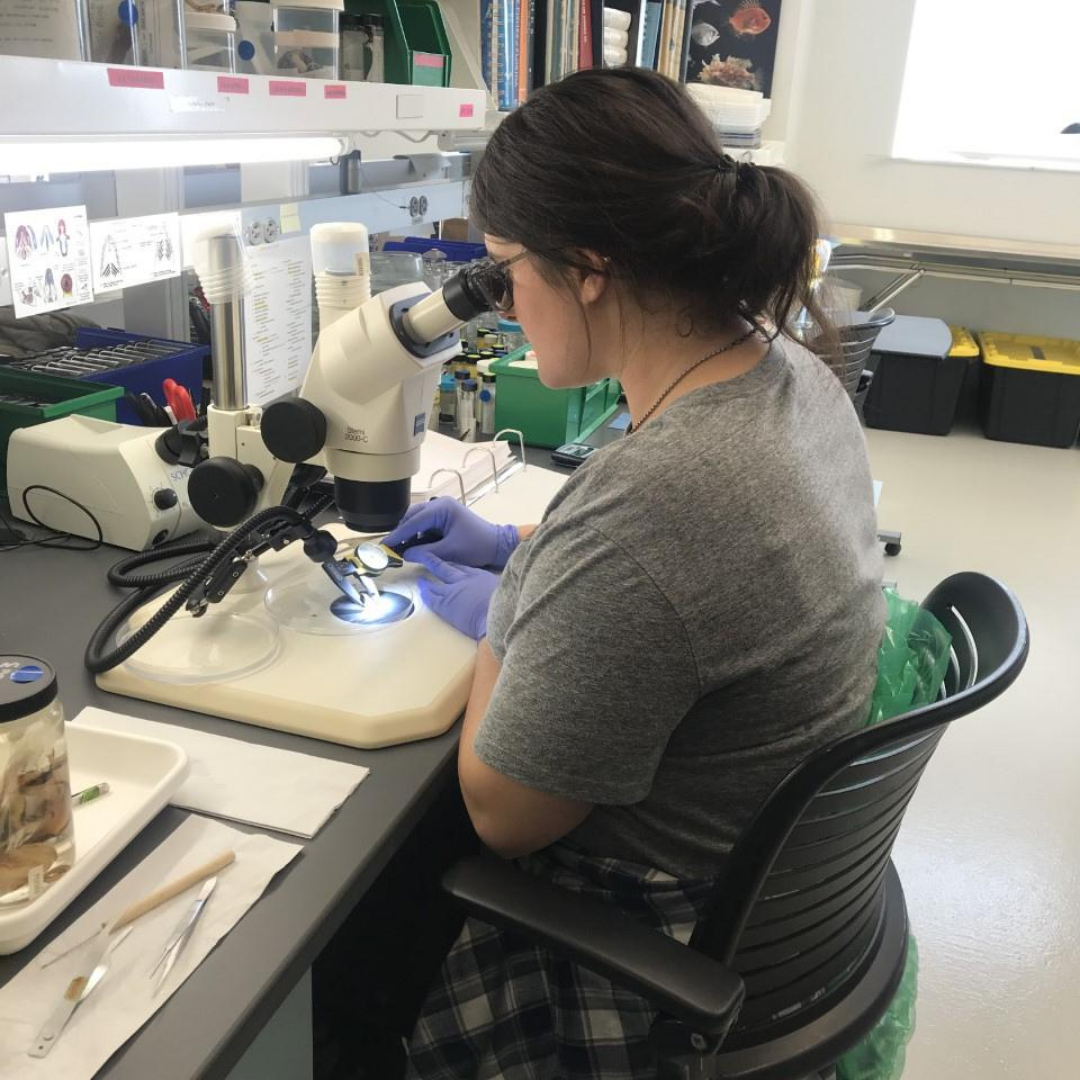
Marine Larval Ecology Laboratory
This lab's research aims to increase our understanding of the environmental factors that are hampering the recovery rates of coral populations and to study how recovery rates can be bolstered by management actions.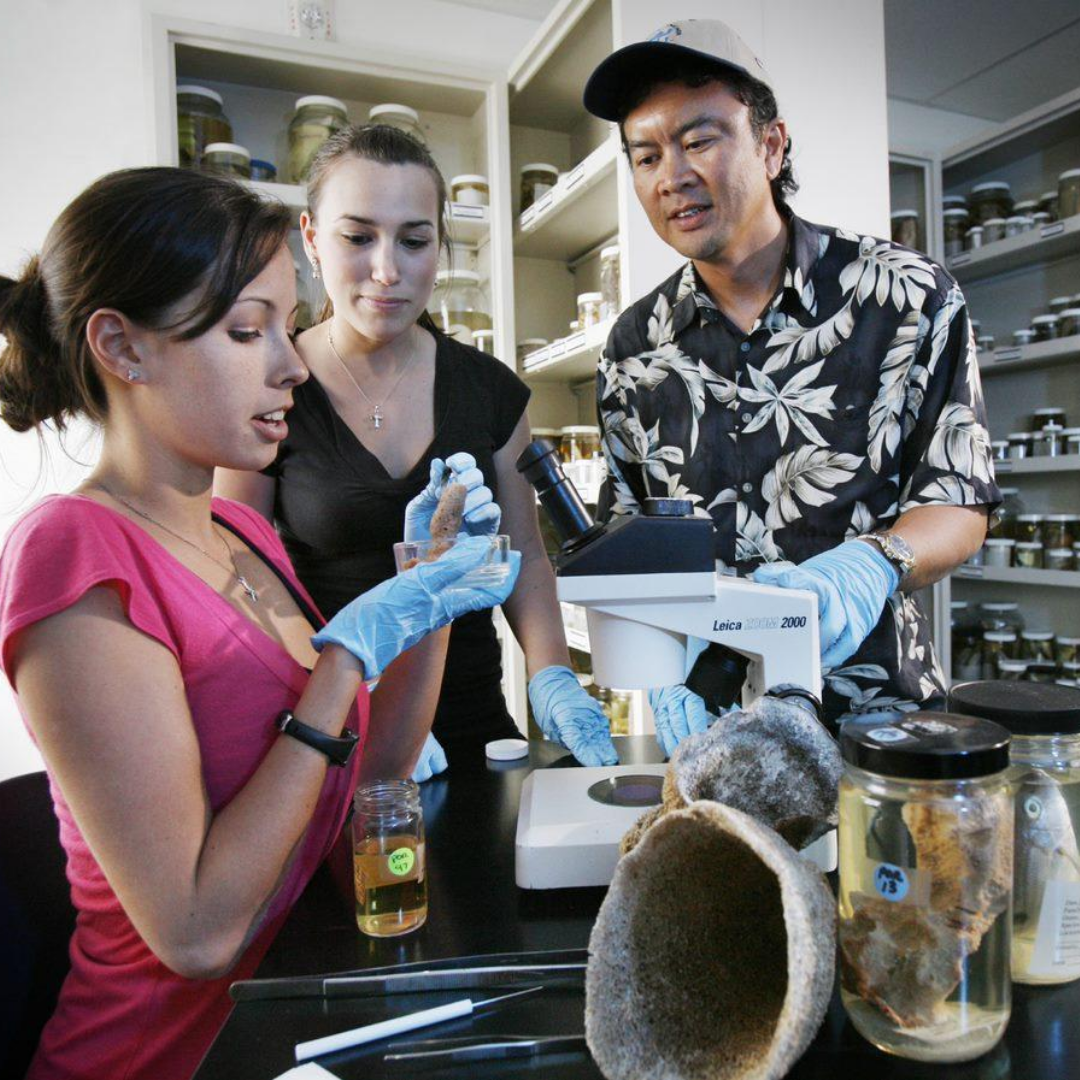
Microbiology Laboratory
Applying and advancing modern biotechnology and genomic (complete hereditary material) sciences for a better understanding of marine organisms and their functions.
This research lab was instrumental in creating the first Global Invertebrate Genomics Alliance (GIGA), which aims to spearhead genomics research of overlooked and cryptic invertebrate species, including those that live on coral reefs.
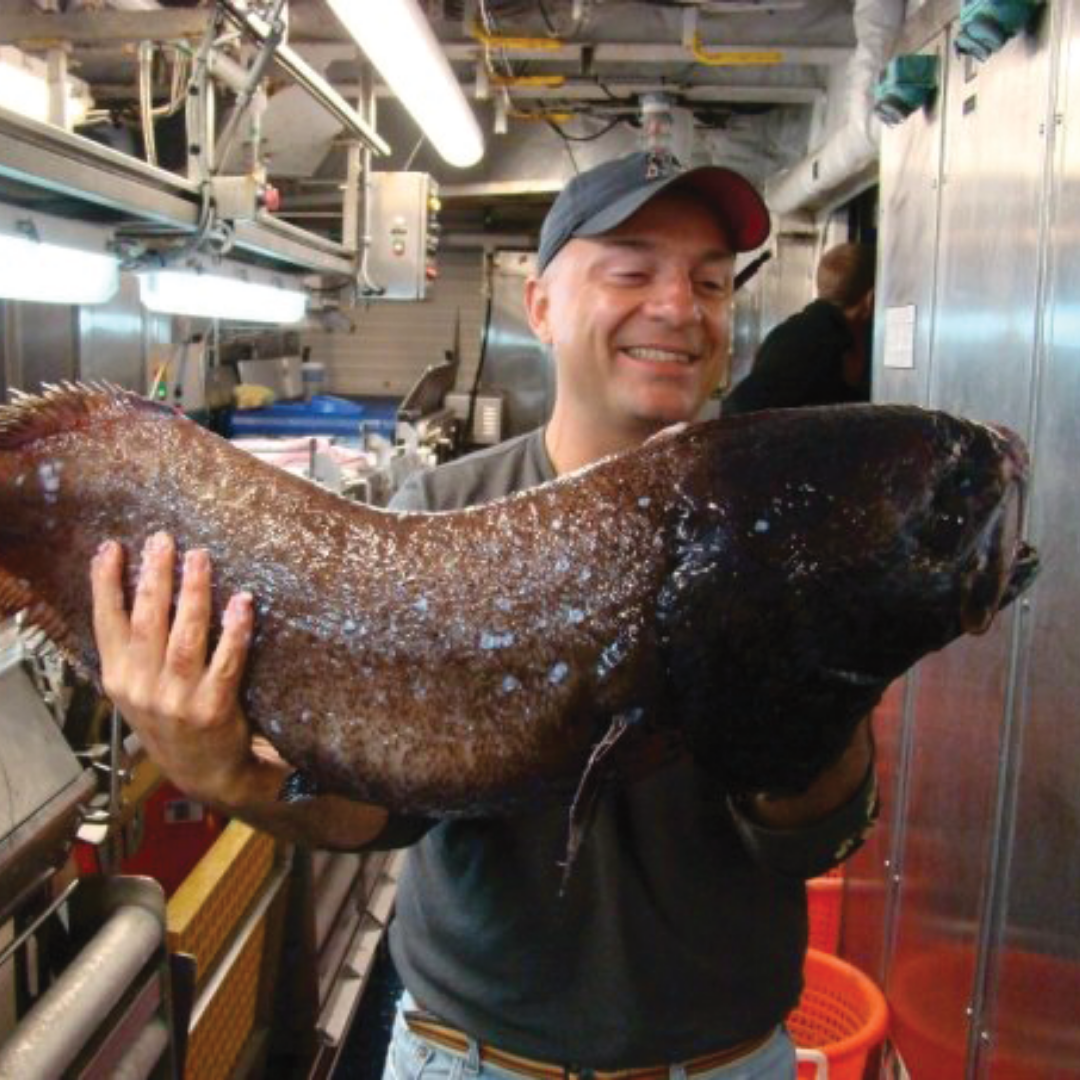
Oceanic Ecology
Research in this lab focuses on the ecology of marine ecosystems, particularly those of the open ocean. The research focus is primarily interested in the connectivity of a variety of trophic levels, from the surface to great depths, with emphasis on the fauna and ecology of the deep-pelagic zone (200 to >5000 m depth).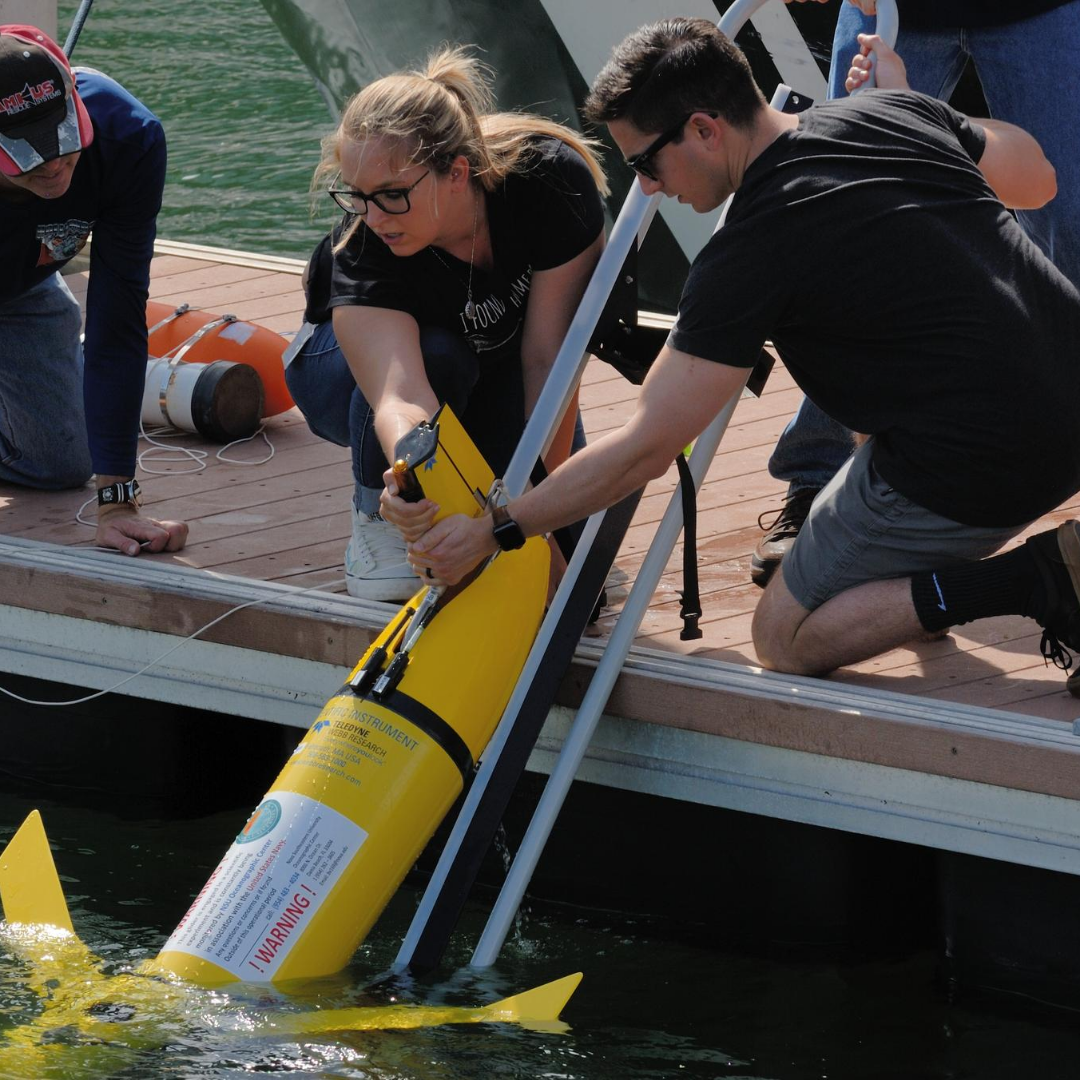
Physical Oceanography Laboratory
This multidisciplinary laboratory focuses on physical oceanography and its uses with biology, meteorology, environmental impacts, environmental engineering, and the implementation of new SAR satellites. These research projects focus from local Florida to global projects.
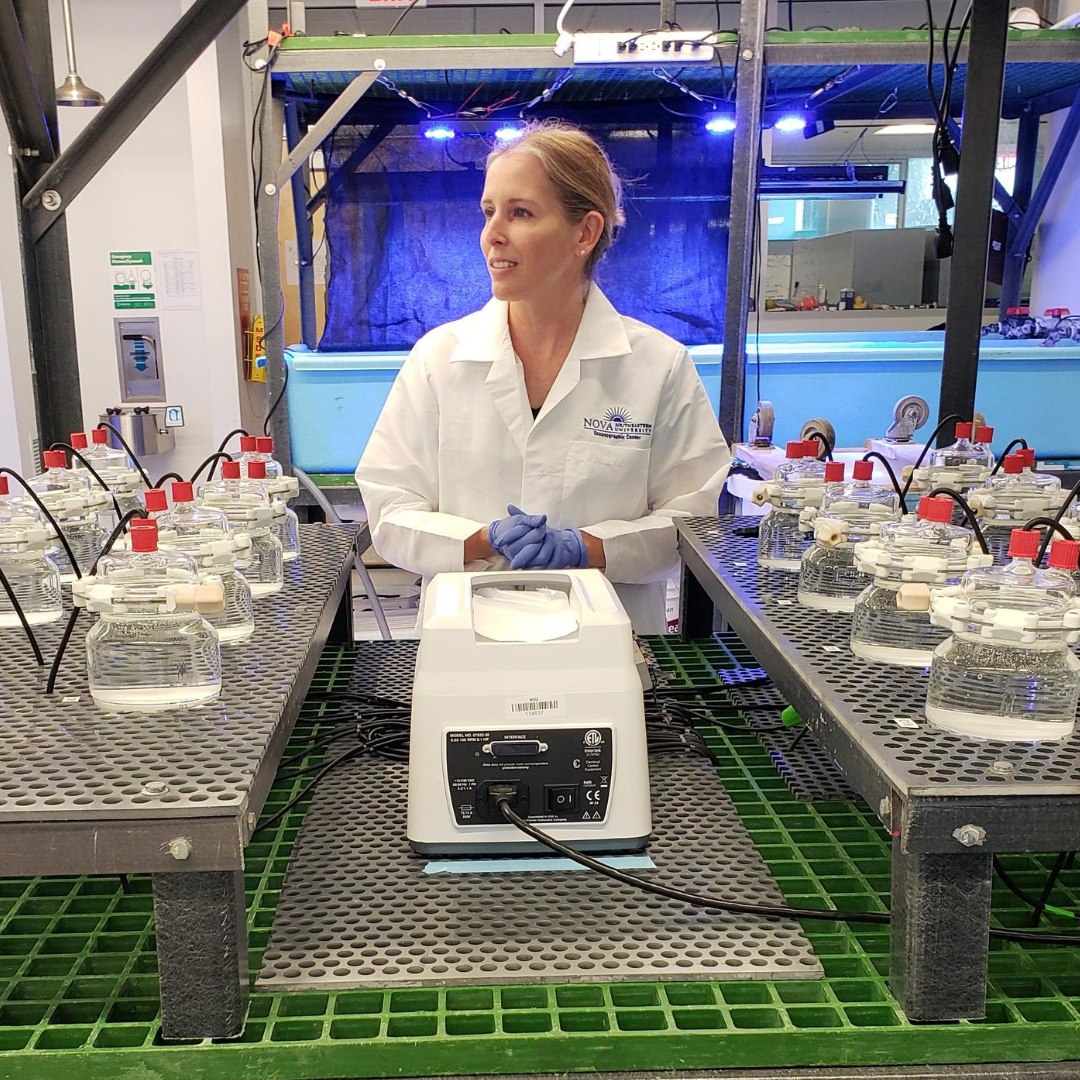
Scleractinian Coral Biology
This research focuses on scleractinian coral biology, conservation, and restoration, with an emphasis on experimental evaluation of the impacts of climate change, ocean acidification, and land-based sources of pollution on coral biology and ecology.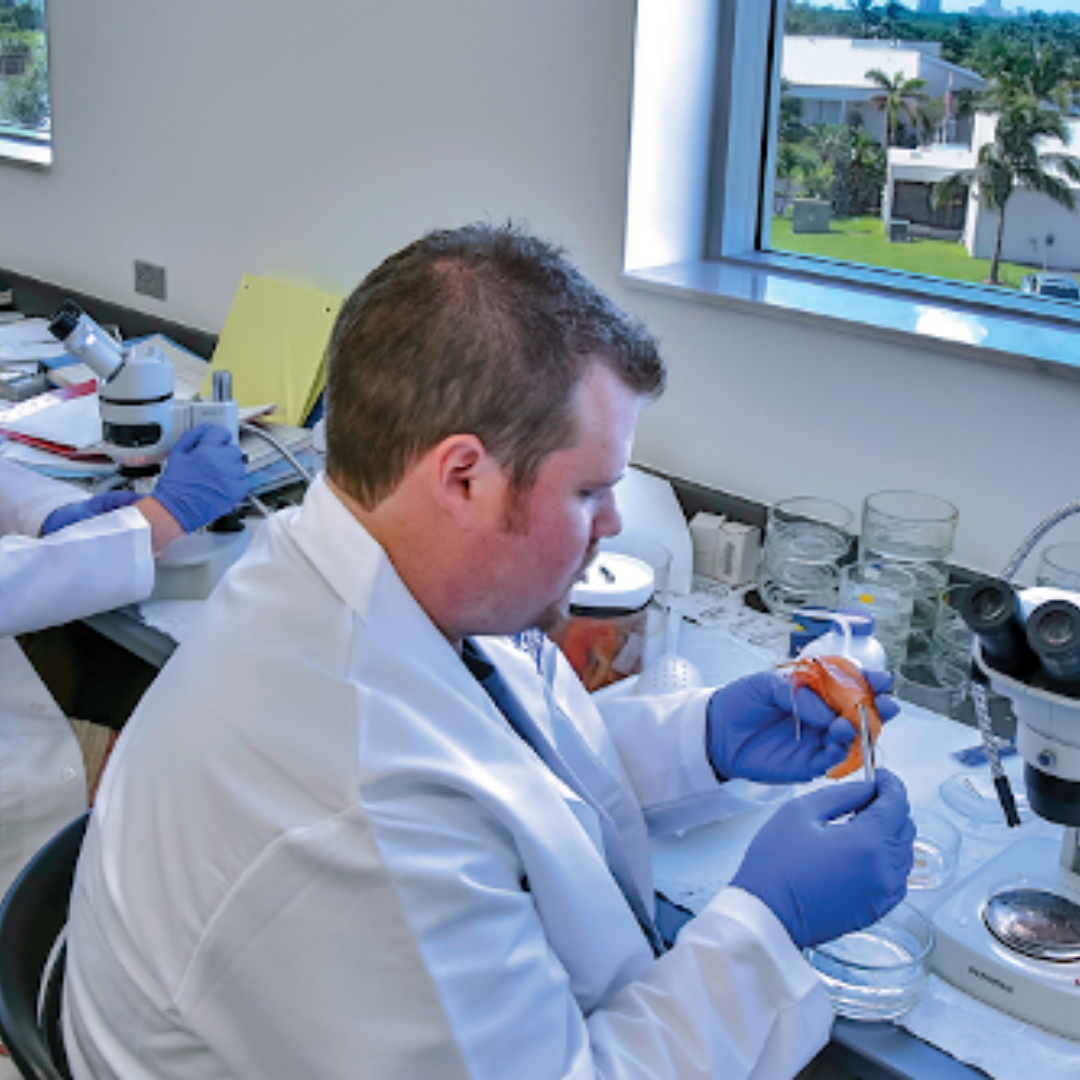
Seascape Ecology Laboratory
In the Seascape Ecology lab at Nova Southeastern University, we are working to understand the spatial and temporal distributions and biodiversity patterns of deep-sea fishes and other deep-living fauna both in the water column and at the seafloor and translate our research findings into useable products for marine resource managers.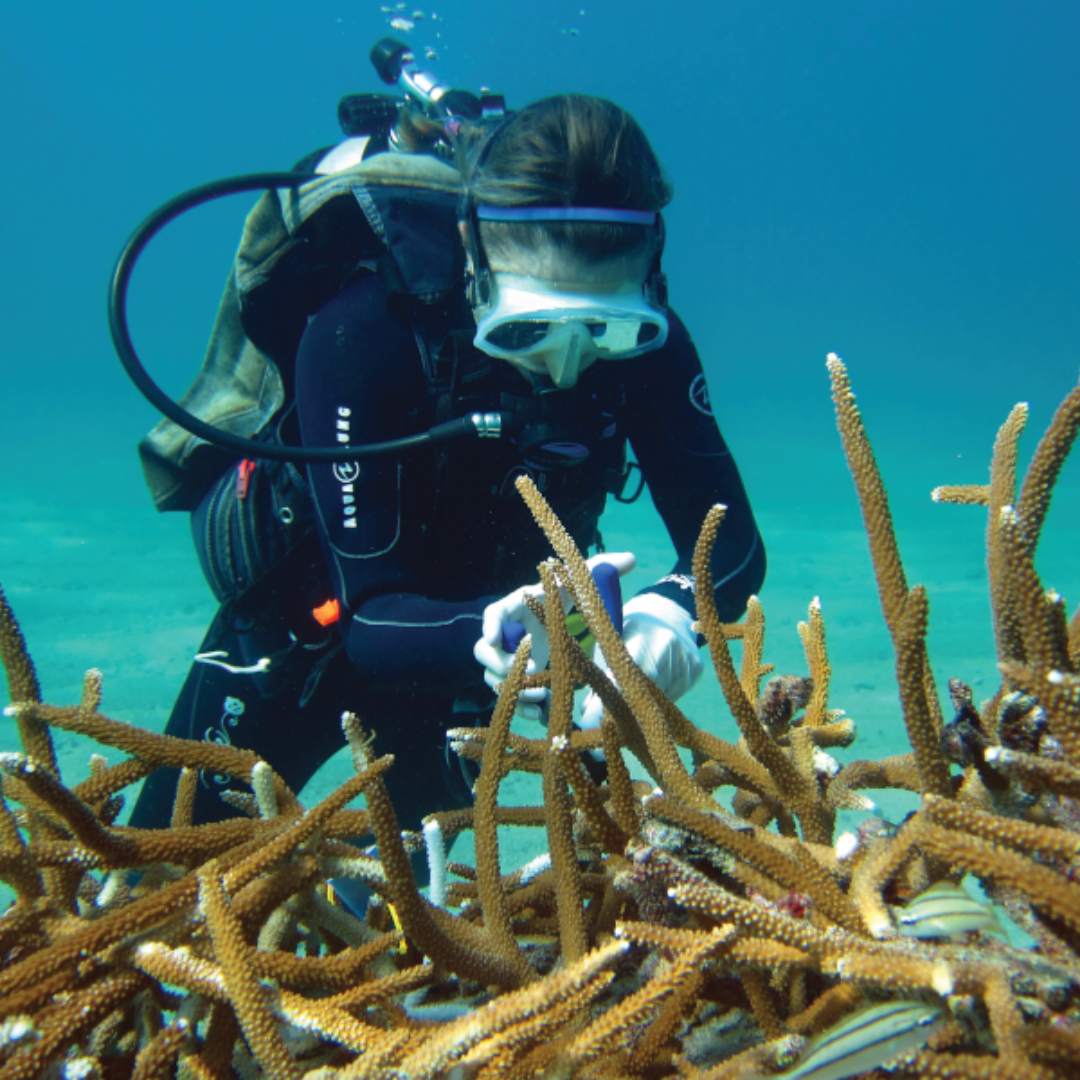
Stony Coral Laboratory
Sclerochronology is the study of the time-dependent growth of the coral skeleton for the reconstruction of past environmental and climate histories of the ocean.
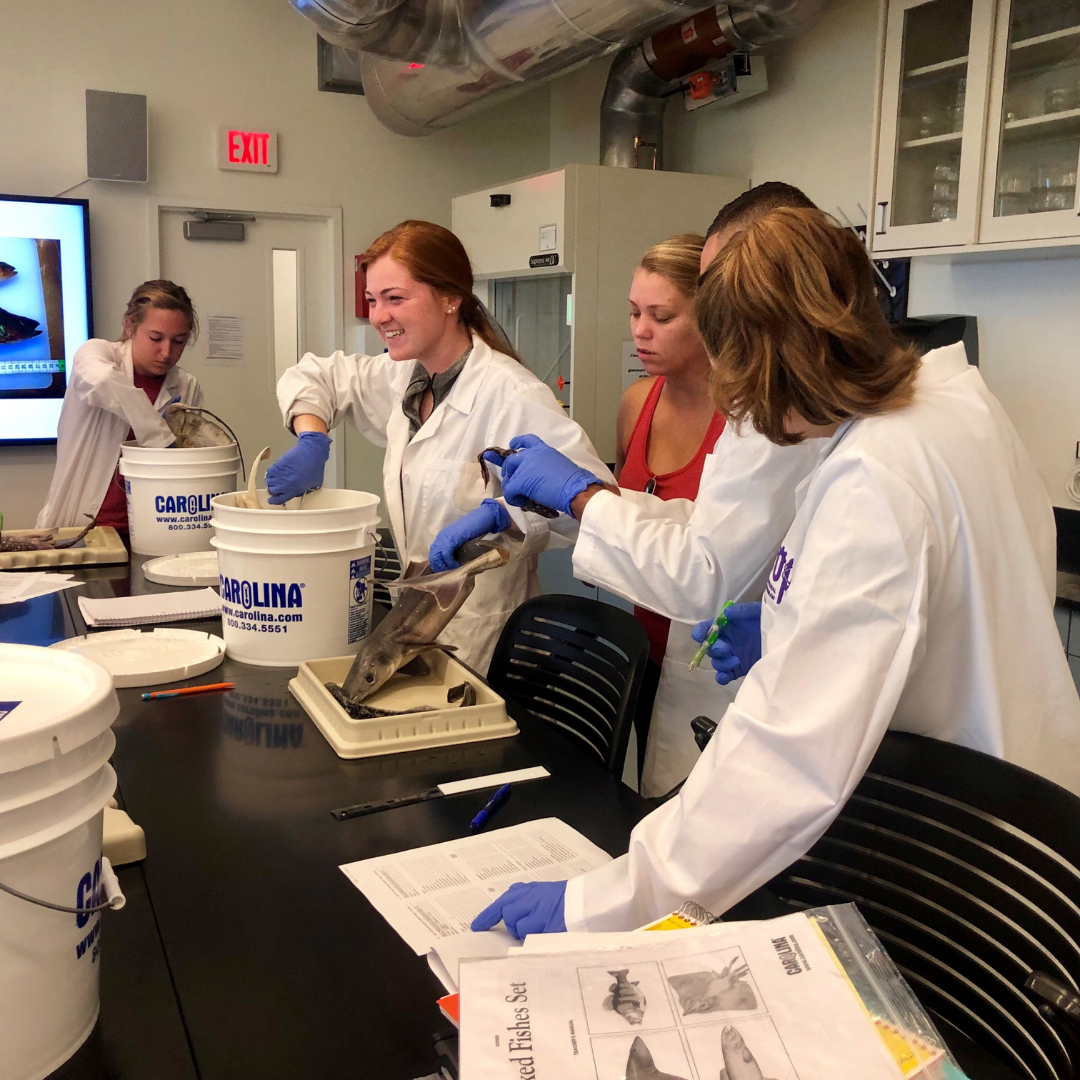
Ecology, Evolution and Environment Lab
The Ecology, Evolution, and Environment laboratory has been established to provide researchers on the NSU main campus opportunity to work on scientific research questions in the environmental field. The laboratory is used by Dr. Hoch and other faculty for their research projects, by several graduate students for their thesis research, and by undergraduates working with Razor's Edge on environmental questions or for independent research credits